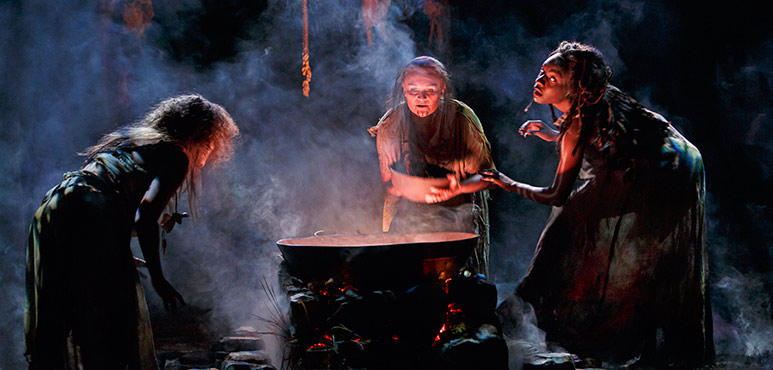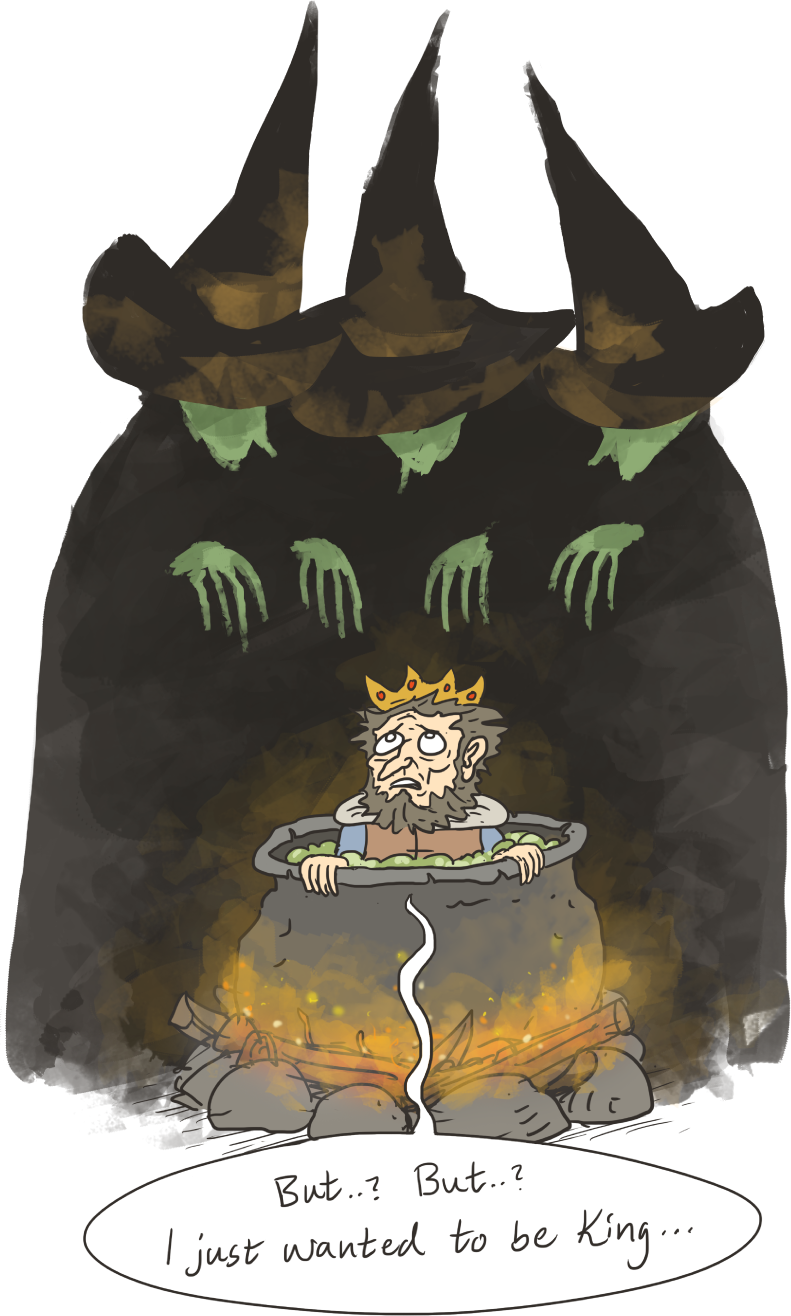

#Weird sisters macbeth license#
In Shakespeare’s England, witches were regarded as women of sexual license and “masculine” bearing. “You should be women,” Banquo says to them, “And yet your beards forbid us to interpret / That you are so (1.3.45-7). The weird sisters are figures who upset categories of gender. Of course, the play itself provided the cue for this take on the characters. Folger Shakespeare Library ART File B471 no.6 (size XS) Payne depicted by Richard James Lane as the three witches in Shakespeare’s Macbeth … “A drum! A drum! Macbeth doth come!” (1838). This engraving shows the actors George John Bennett, Drinkwater Meadows, and John Howard Payne in the roles in 1838. And, despite the gradual return to a darker version of Macbeth as the decades passed, this practice of cross-dressing continued right through to the mid-19 th century. The weird sisters were now more cabaret than creepy.īy the 18 th century, it was stage convention for the witches, along with Hecate, to be played by male actors who specialized in physical comedy. His Macbeth included all-singing, all-dancing witches, as well as the sight of Hecate riding in a cloud. Restoration-era audiences wanted music, special effects, and variety – and Davenant didn’t disappoint them. That year, William Davenant sought to pull in the punters to his theater at Lincoln’s Inn Fields, London, by staging a spectacular adaptation of Macbeth ( an adaptation revived by the Folger Theatre to much acclaim in 2018). The origins of this surprising, but long-lasting, stage interpretation go back to 1664. During the period in which Shakespeare became “the Bard”, the witches in fact brought a large dose of comedy to Shakespeare’s bloody tragedy. For a century and more – from the late 17 th to the early 19 th centuries – actors played these parts for laughs. The stuff of nightmares.īut Shakespeare’s witches haven’t always terrified audiences. Then came the unsettling scurry of footsteps in the aisleways around us before, finally, the light of a dim flame center-stage enabled us to see – just – the hunched bodies of three figures: “When shall we three meet again…” Here were the weird sisters, the witches.


At the start of the show, the house lights went all the way down, plunging us into complete darkness. What’s the most scared you’ve ever been in the theater? For me, that moment came 20 years ago, during a performance of Macbeth by the Royal Shakespeare Company. Photo by Brittany Diliberto, Bee Two Sweet. While Macbeth wanders around in a haze, Banquo makes excuses for his war buddy until Macbeth finally snaps out of it, and they all head off to meet the king.Left to right: Emily Noël (Witch), Louis Butelli (Duncan), Rachael Montgomery (Witch), and Ethan Watermeier (Witch) in the William Davenant adaptation of Shakespeare’s Macbeth. There’s just one problem: to make that happen, he’d have to murder Duncan, and he can’t help but envision how he might pull that off. But Macbeth, muttering to himself, begins to imagine that he actually could become king. But Banquo’s a little worried, too: couldn’t the witches be agents of evil, sent to lead them to their own demise? Maybe. Macbeth and Banquo are starting to wonder if there really might be something to the witches’ prophecies. Ross tells him he’s about to become the Thane of Cawdor (so the witches were onto something), because the previous thane is now a traitor. Macbeth and Banquo are busy marveling over the mysterious witches when Ross and Angus arrive to tell Macbeth that the king wants him. As they start to leave, Macbeth begs them to stay, wanting to know more about their prophecies, but the witches are already gone. The three witches tell Banquo that his descendants will be kings, but he won’t. Banquo wants to know if they’re telling the truth - and he wants to know what lies ahead in his future, too. The witches greet a rather bewildered Macbeth as the “Thane of Glamis,” “Thane of Cawdor,” and “king hereafter.” Since he was, in fact, the Thane of Glamis, and he’s about to become the Thane of Cawdor, we can’t help but wonder if “king hereafter” might hold some water as well. The witches are back, and they finally get to meet Macbeth, who’s got Banquo in tow.


 0 kommentar(er)
0 kommentar(er)
